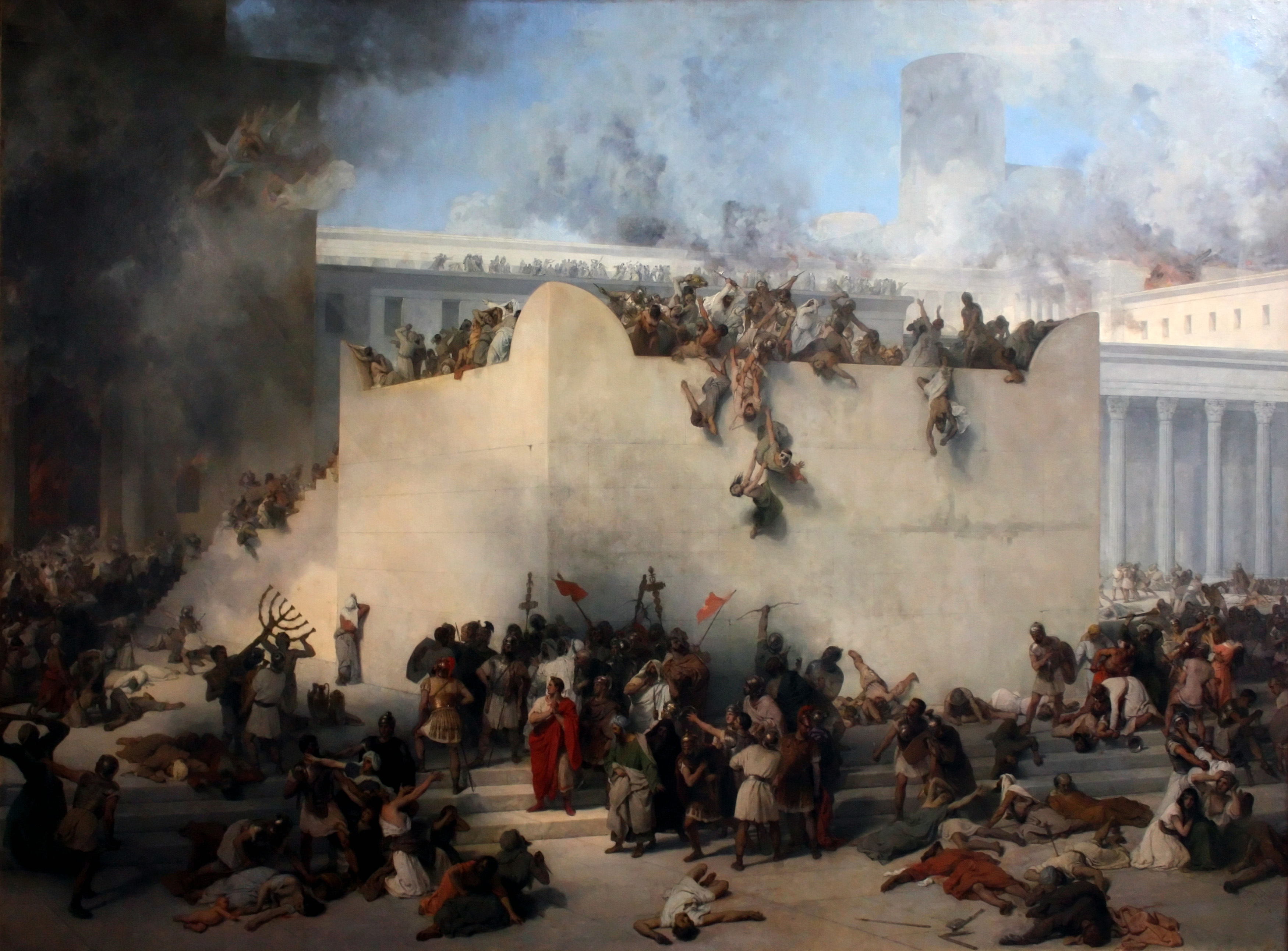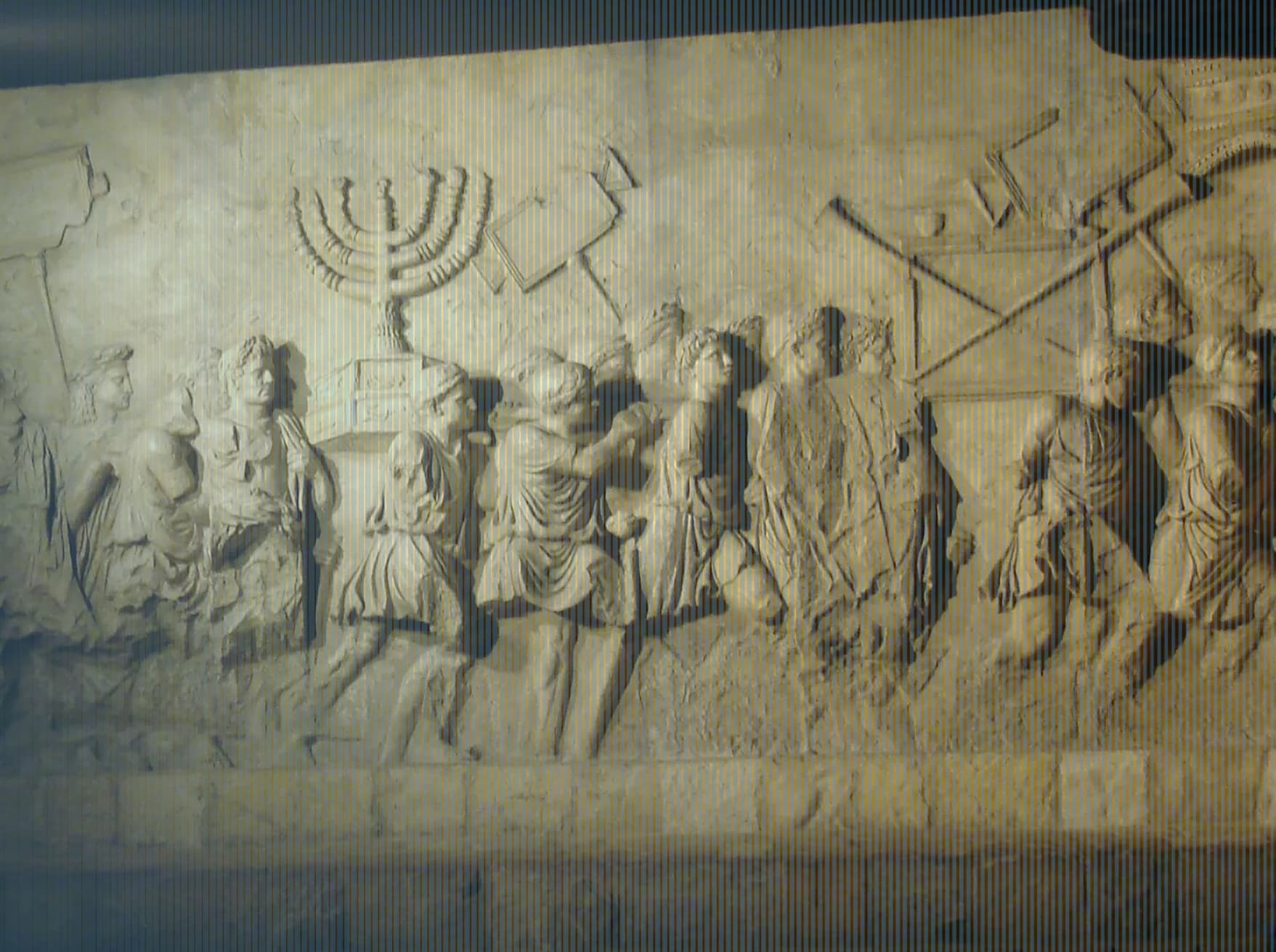Israel is a young state. It was born not quite eighty years ago, as the British Mandate for Palestine ended in the aftershocks of World War II. Meanwhile, multiple other Middle East nations were taking shape. The modern country of Israel began amid civil war and attacks by hostile neighbors, and conflict with other powers has followed to this day.
Israel is young, but the Jews are an ancient people. The first non-biblical reference to them comes from an Egyptian inscription that dates to around 1210 BCE. And at no time have the Jews ever given up their attachment to their homeland, which they traditionally called the Land of Israel.
“Remember” (Zakhor) is a biblical injunction, and in Israel remembering is a historical necessity. American Jews have the luxury of taking a holiday from history, or so they think, but Israelis do not.
My new book, Jews vs. Rome: Two Centuries of Rebellion Against the World’s Mightiest Empire (Simon & Schuster, 2025), examines a defiant era—a sustained refusal to submit, with fateful consequences—that reminds me of how the past still lives in Israeli politics and policy. American policymakers ought to take note.
Israel is a small land located between great powers. ’Twas ever thus.
Ancient Israel pivoted between Egypt and Assyria, Macedon and Persia, Ptolemies and Seleucids, Rome and Parthia, and Byzantium and Sasanian Persia. Today, many Israelis are drawn to America and its culture. They dream of America, as an Israeli pop song noted. Certainly, the United States has generally been a close ally of Israel’s since the state’s creation in 1948, and the two countries have drawn closer under President Trump.
But Israel needs to look east as well as west. At first, it had strong support from the Soviet Union, only to see the Soviets pivot and become staunch allies of the Arab states warring with Israel. Since the fall of the USSR, Israel has put emphasis on having good relations with Russia.
Iran and Turkey, once Israel’s allies, are now either implacable foes, in the case of Iran, or tense near-neighbors, in the case of Turkey. Further east, Israel also pursues close ties with India.
Nor should one overlook Israeli relations with the many Arab states of the Middle East—some hostile, others sharing a cold peace, and others still enjoying the warmer ties of the Abraham Accords.
History suggests that Israel and Iran are natural friends. Is that surprising? Under the shah, Iran was the second Muslim-majority country, after Turkey, to recognize the new state. To be sure, some Iranians supported the Palestinians and opposed Israel, but the regime developed close ties with the Jewish state.
Good Iranian-Jewish relations go back much further. In ancient times, Cyrus the Great, the founder of the Achaemenid Persian empire, the first great Iranian empire, allowed the Jews of Babylonia to return to Israel from exile and to rebuild Jerusalem and their Temple. For centuries, Israel, then known as Judea, was a Persian province.
In later years, it was conquered first by Alexander the Great and the Macedonians and then by Rome, but many Jews still looked to Iran. In the period of the three great Jewish revolts against Rome that my book covers, Iran, then known as the Parthian Empire, served as a counterweight to Rome. It never provided enough help for the Jewish rebels to drive out the Romans, but five centuries later, a new Iranian empire, the Sasanian Empire, reconquered Judea—by then renamed Palestine by the Romans—and briefly restored Jewish rule in Jerusalem.
Today’s government in Tehran has dedicated itself to the destruction of the Jewish state and its replacement by a Palestinian entity, which it considers the only legitimate ruler of what is now Israel. State-sponsored Iranian terrorists attack Jews outside of Israel, as far afield as Argentina and Australia.
The hatred that the Islamic Republic of Iran holds for Israel is a historical aberration.
Israeli Prime Minister Benjamin Netanyahu has repeatedly addressed the Iranian people directly, citing the long record of friendship between the two peoples.
Netanyahu is likely to have struck a chord. Many observers think that a large part of the Iranian population does not share the regime’s hostility to the Jewish state. On the contrary, the unpopularity of the mullahs’ regime makes Israel rise in the esteem of many Iranians.
Israel’s stunning military successes against Iran last summer could not have succeeded without help from Iranians within the country, many of them presumably opponents of the regime. In August, the Iranian government arrested twenty people it accused of spying for Israel, and executed an Iranian nuclear scientist it said passed on sensitive information to Israel’s Mossad intelligence agency.
History forces Israelis to look inward as well as outward, especially when it comes to internecine conflict. In domestic politics, Israelis have been highly divided for decades, ever since the hegemony of the Labor Party and its largely Ashkenazi (European) followers was supplanted by the Likud and its following among Mizrachim (Jews from Islamic lands).
Opposition to the current Netanyahu government, Israel’s most right-wing ever, reached a fever pitch in 2023 with controversy over the government’s proposed judicial reform. Proponents saw it as a way of democratizing the courts, while opponents considered it the thin end of a wedge that would lead to dictatorship or even theocracy. There were massive demonstrations and vows by some not to report for military service, hitherto an almost sacrosanct part of citizenship for most Israeli Jews.
And then came the attack of October 7, 2023. Israel united—mostly. In fact, division continues as Israelis clash over the fate of the remaining hostages in Gaza and the government’s determination to continue the war against Hamas. Some Israelis clamor for a cease-fire and the return of the last hostages even at a high price.

Again and again, Israeli commentators compare today’s bitter disunity with the most infamous domestic conflict in Jewish history. This was the hostility among the various rebel factions that occupied Jerusalem against the Romans between 66 and 70 CE, during what is known as the First Jewish-Roman War. Before the Romans laid siege to the city in 70, the rebels preferred killing each other to fighting the common enemy. They even destroyed the city’s grain supply rather than share it with their foes. Unsurprisingly, that only caused the starving city to lose to the Romans all the sooner.
The Talmud concluded that it wasn’t the Romans who destroyed Jerusalem. Rather, it was the “senseless hatred” of Jew versus Jew. More than one commentator has warned Israelis not to let their divisions get the better of them now, as they did in that crucial moment long ago.
Others have wondered whether Israeli disunity in 2023 in fact contributed to the decision by Hamas and its Iranian backers to attack.
One thing is certain. As Israelis face the future, they will have in the back of their minds the lessons of a distant past. An American quotation comes to mind. William Faulkner famously wrote, “The past isn’t dead. It’s not even past.”
Barry Strauss is the Corliss Page Dean Senior Fellow at the Hoover Institution. He is a military and naval historian with a focus on ancient Greece and Rome. He is the author of several bestselling books, including his most recent, Jews vs. Rome: Two Centuries of Rebellion Against the World’s Mightiest Empire.

